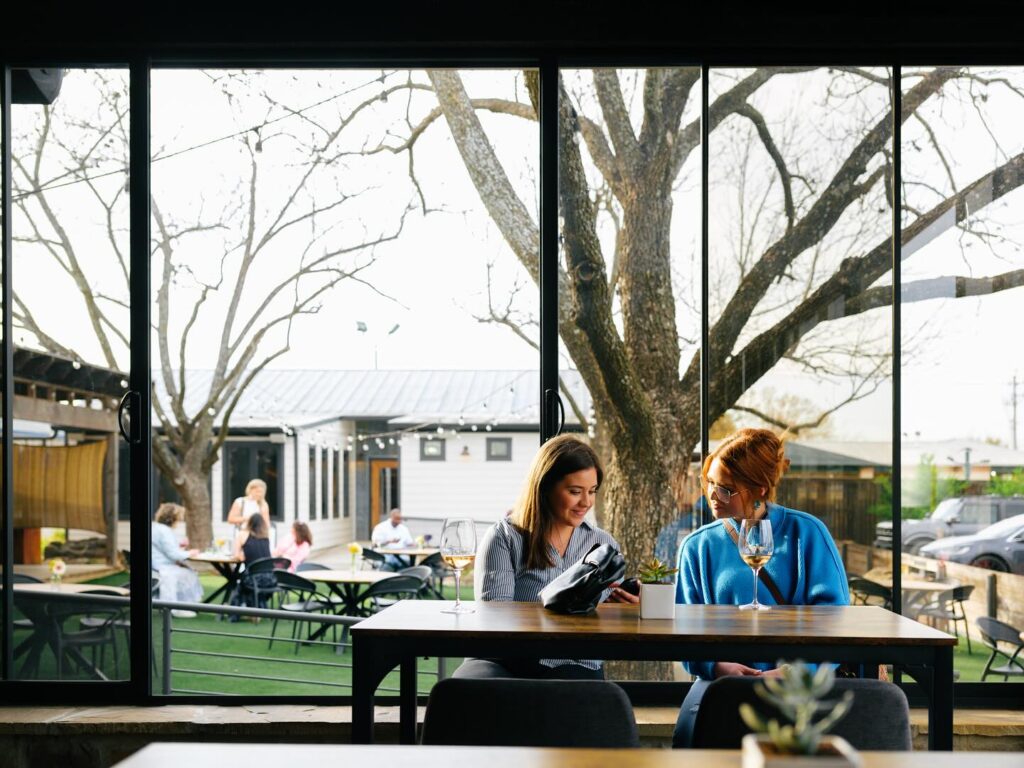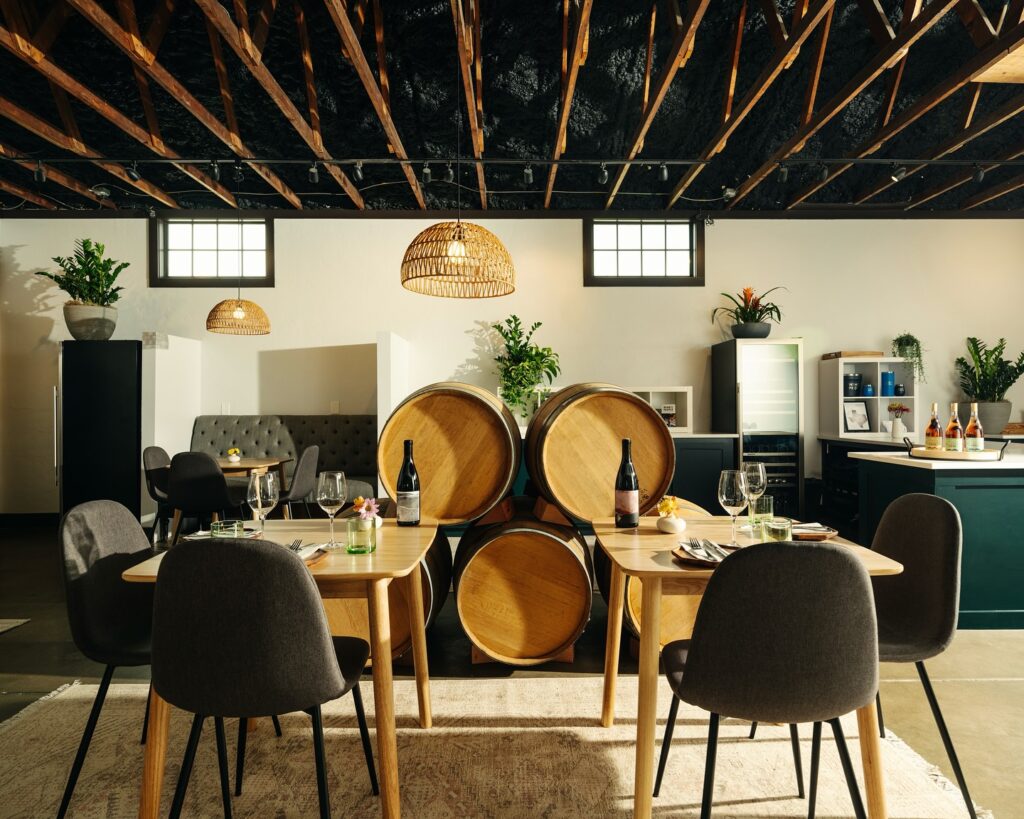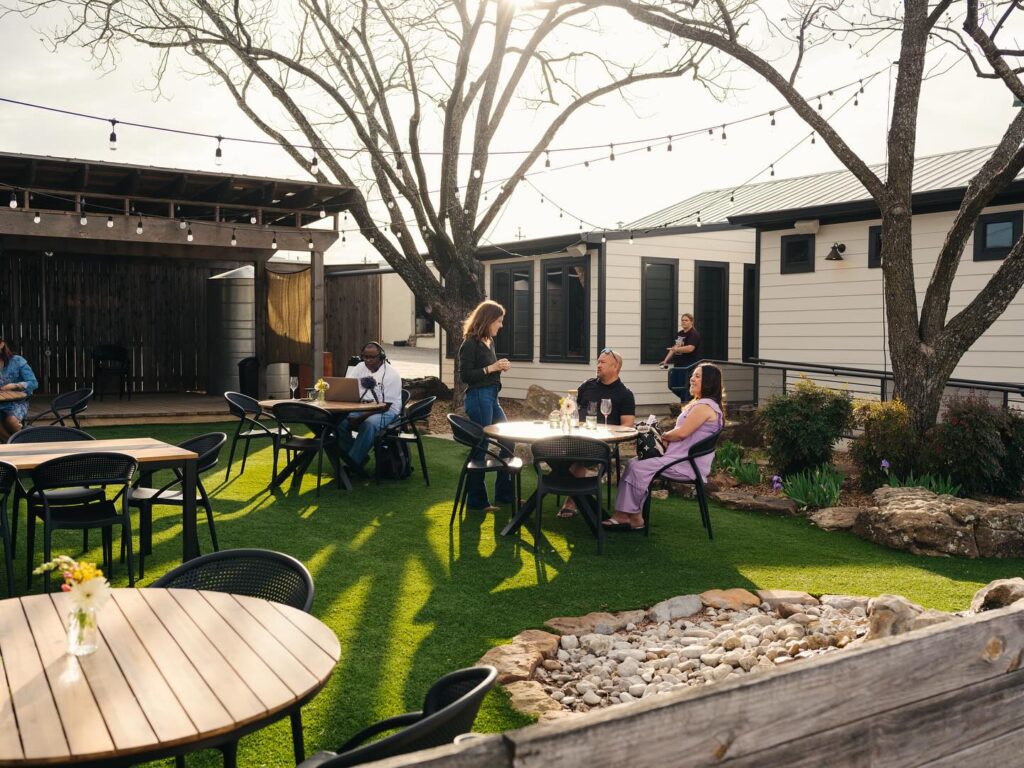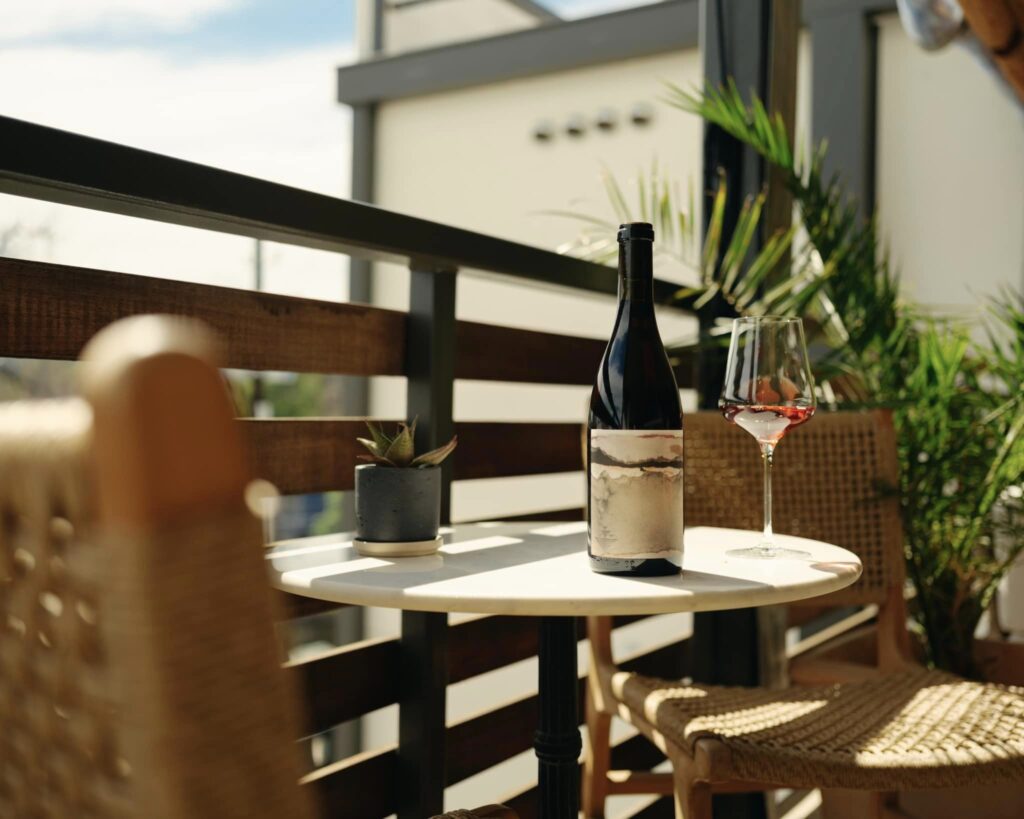Wine for the People’s Rae Wilson Leads the Way in the Texas Wine Industry
The winemaker creates low-intervention wines including the popular 100% Texas grown-and-made brand, Dandy Rosé

Winemaker Rae Wilson has received plenty of well-deserved accolades for her company Wine for the People, which produces low-intervention, 100% Texas grown-and-made brands Dandy Rosé and La Valentía.
Wilson has also garnered attention for being one of very few women on the production side of an industry still dominated by men. And while there’s no doubt Wilson is a force to be reckoned with, she’s humble enough to downplay her role as a key player in the evolution of the Texas wine industry.
RELATED: Austin’s Wine Scene Embraces Low-Intervention Labels

A native of St. Louis, Missouri, Rae Wilson moved to Austin in 2005 to help a sick friend. She started working as a food server and eventually decided to concentrate on wine. In early 2008, Wilson earned her certification as a sommelier. Wilson took cellar positions to learn low-intervention winemaking (see sidebar, “Where there’s a wine (grape), there’s a way) at prominent wineries in Napa Valley and Portugal.
“This is just my viewpoint, but I think my role is to keep a wine healthy, from vine to bottle,” says Wilson. “I let nature ferment it as much as possible to guide it into the greatest expression it can be. I’m not here to engineer a wine . If I need to introduce a selected yeast to make a wine healthier, I will, but my responsibility is to make great wine. Without a sense of place, I’m not interested.”
Wilson’s signature as a winemaker is “very traditional, very clean wine” made from grapes that are harvested, fermented and bottled in Texas. Her profile is diverse, offering consumers an array of varietals and styles, from the aforementioned rosé and a sparkling Chenin Blanc to lesser-known grapes like Carignan and Cinsault. She’s also released collaborations with notable and likeminded Texas winemakers like Andrew Sides of Lost Draw Cellars in Fredericksburg.

“Rae’s been a pillar of the local wine scene for as long as I can remember. Her excitement and enthusiasm for Texas wines led many of us to pay attention for the first time to what was happening in our own backyard,” says Dilley. “Her fresh perspective made clear that many of us — myself included — were guilty of short-changing some of the amazing work being done in Texas. Her support for the local industry is legendary. We’re big fans of her wines at Bufalina, and the first Texas wine we ever put on the list was made by her.”
After returning from Portugal, Wilson grew intrigued by Texas’s potential to become a “world-class wine region.” She moved back to Austin in 2010 and founded Wine for the People, which was initially devoted to the “community and culture” surrounding Texas wines, as well as connecting Texas winemakers with the greater wine industry.

Wilson soon found herself in demand as a consultant and educator in between starting the process of creating her own wines — the first vintage of Dandy Rosé was released in 2014.
“In Texas in 2011, I stood out both as a woman and as a queer person, but a lot of people were also curious about what someone who was already established in the industry saw in Texas wines,” she explains. Wilson admits that initially, she had to ask herself that very same question. “But then I realized that I needed to open my mind and start exploring what Texas has to offer as a wine region. It’s not all hot and flat here. It’s bigger than France with so many microclimates, countless elements of terroir and there are just so many wine varietals to experiment with. What I love is the breadth of possibilities.”
MORE: Tribeza’s Guide to Incredible Hill Country Wineries
In the early days of consulting, Wilson says she encouraged Texas winemakers to make drier rose becausé “sweet wine isn’t what sells in cities.” She notes that many traditional, southern French varietals like Cinsault, Mourvèdre and Grenache do well in Texas because they agree with the climate and thus yield consistent wines. Even some cool weather varieties do well because they’re innately protected against late frosts.

Despite her success as a sustainable Texas low-intervention winemaker, Rae Wilson demurs any suggestion that she’s responsible for creating or galvanizing the movement.
“Chris is but one producer who led the 100% Texas wine movement,” she says. “I just see what Texas is capable of. We don’t have the benefit of centuries of winemaking in Texas so there’s no historical data on production here. It’s going to take generations of research and experimental cultivation, especially with climate change, but it’s so exciting.”
Currently, Texas has nine AVA’s, or American Viticultural Areas — designated appellations used to denote wine regions. The two largest are the Panhandle (nine million acres) and the Hill Country (eight million acres.) The Llano Uplift recently applied for an AVA designation. and Wilson says in the coming years, consumers will see “an explosion” in sub-AVA’s. Currently, she uses county names on her wine labels to designate where the grapes were grown, but she is excited for a day when bottles will bear hyper-specific regions of cultivation.
As for determining what grows where and what wine styles work best for specific varietals and what farming methods work best, “It’s an open field,” says Wilson. “A great wine is dependent upon those factors, as well as how it’s treated in the cellar.”
Finding Community in the Fredericksburg Tasting Room
Community is also key to Wilson’s ethos as a winemaker. In February 2024, Wilson relocated to open a new Wine for the People tasting room in Fredericksburg, Texas. Wilson joined forces with William Chris Wine Company to integrate her Wine for the People brands Dandy and La Valentía into the WCWC portfolio. The new location opened at 113 E. Park St. in Fredericksburg.
Since its opening, the wine bar has indeed become a convivial hub, offering snacks like charcuterie boards. Like so much of Wilson’s work, it reflects her passion for bringing people together.
“People are finally starting to realize we live in a wine region,” she says. “And I very much want to keep helping them make that connection.”
Where there’s a wine (grape), there’s a way

Over the last decade, natural or low-intervention wines have become one of the fastest growing categories within the global wine industry. While there’s no regulation on the terms, it refers to a product that is free of additives like DAP (Diammonium Phosphate, a nitrogen source used to feed yeast), tartaric acid, coloring, stabilizers, tannins or oak chips. The winemaker doesn’t pitch yeast, filter, refine or perform any post-production other than pressing the grapes. The addition of sulfites, which are naturally occurring compounds used as a preservative, is permitted, however.
The Organic Vineyard Alliance website has a glossary explaining the different wine production methods, including conventional, organic, biodynamic, sustainable and natural, as well as more in-depth information.
Visit the Fredericksburg Tasting Room
Visit the Wine for the People’s beautiful Fredericksburg tasting room at 113 E. Park St. from 11 a.m. – 5 p.m. on Sunday – Thursday, and 11 a.m. – 6 p.m. on Friday and Saturday. Book your tasting tickets online at wineforthepeople.com.




